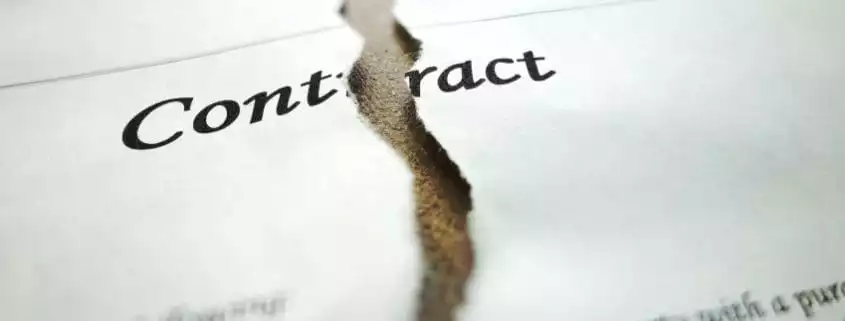The Most Common Types of Business Litigation Cases
Hiring a business litigation attorney will help protect your interests as you file a claim pertaining to corporate law.
Corporate law involves the rights, relations, and conduct of people, companies, and organizations.
It regulates how a variety of people, including investors, shareholders, and employees interact with each other. When a dispute occurs, it is often resolved through business litigation.
Today, we’re going to explore some of the most common types of business litigation so you have a better understanding.
Let’s take a closer look …
What Is Business Litigation Anyway?
Business litigation is a field of law that deals with the many situations where company owners, managers, and employees have differences that cannot be resolved on their own and need legal intervention.
In these situations, there is a plaintiff that seeks some sort of remedy, usually monetary in nature, from a defendant responsible for whatever damages are being claimed.
Business disputes can take many forms, and there are attorneys who specialize in each one and offer assistance by offering counsel to one party or the other, and usually, both sides are represented in court.
Often, these disputes can be resolved through arbitration or mediation without going to court. But sometimes trials are needed.
Here are some of the more common business litigation cases.
Breach of Contract
In a contract, two parties agree to certain obligations toward each other in some kind of exchange. When one or more of these parties fail to meet the terms of the agreement, a breach of contract occurs.
If a contract is written in fuzzy terms, it can lead to misunderstandings and disparate expectations by the two parties. And this can lead to disputes.
Sometimes a contract can be inferred rather than expressed. In this case, a breach of contract is still possible under certain conditions.
Under one such condition, called quantum meruit, a party seeks to recover the value of improvements he or she made or the value of services provided.
Under a different condition, called promissory estoppel, one party claims that the other party (the defendant in this case) made a promise that he (the plaintiff) relied on to his detriment, and fairness demands enforcement of the promise.
A breach of contract can be excusable if the contract is void. This can happen if one of the parties was a minor (under age 18) or lacked the mental capacity to make a contract.
A contract may also be excusable if one of the parties withheld relevant information the other party needed to know or if one of the parties was under duress when making the contract.
A contract may be voided if it were illegal (like the selling of illegal drugs or firearms). It also may be voided if the contract were changed with things added or removed.
Torts and Tortious Interference
A tort is a civil case in which one party claims that another party caused him or her physical or emotional harm. Tort cases can take many different forms and can be based on alleged harm to someone’s personal safety, the safety of their property, or financial security.
Common torts are those related to accident and injury, assault or battery cases, and negligence in which one party alleges that a caregiver did not fulfill their assigned duties or responsibilities.
Another kind of tort involves a breach of contracts, expressed or implied, resulting in economic injury, and it is called tortious interference.
Tortious interference with contract occurs when someone who is not a party to a contract says or does something to cause one of the parties to breach a contract.
The second kind of economic injury is tortious interference with a business relationship, which is similar to the contract interference except that an actual contract does not have to exist.
With tortious interference, a person or business in a contract can sue a third party if that third party knowingly interfered with the contract, and this led to a breach, with resulting damages to one or both parties.
Corporate, Partner, and Member Disputes
In business, there are relationships at many different levels. There are obligations, both fiduciary and service-oriented, that are the basis for good faith and fair dealing.
Partnerships expect members to carry out their responsibilities with prudence and care and exchange information important to carrying out effective business operations. Proper disclosure is necessary for partners to make sound business decisions. There should be no conflicts of interest that may compromise the integrity of those decisions.
When there is a lack of open communications and obligations are not met or partners are acting out of self-interest rather than for the good of the partnership, disputes can occur that can lead to litigation.
Corporate disputes can occur over acquisitions or mergers or the break-up (business divorce) of a business.
Sometimes contracts contain clauses that any disputes will be taken to arbitration or mediation before going to court. Mediation involves both parties presenting their cases to a third party, with the final result not binding and the possibility existing that the dispute will still go to court.
In cases of arbitration, the decision of the third party is usually binding. The process is a bit more formal than mediation.
Employment Disputes
Employment disputes often center on worker claims of unfair treatment and allegations of discrimination. Workers can have claims of harassment or bias or hostile work environment. There can be wage and hour disputes or issues regarding healthcare, family leave or other benefits.
Workers might be passed over for promotion and feel the primary reason was age or gender. They can be terminated and feel the reason was age or race. They may be asked to do work that no one else is asked to do, and feel that the reason is personal rather than company-based.
Workers may see unsafe or unhealthy conditions and report them as violations, with a resulting negative reaction from their employer – a situation called “whistleblower” that can lead to punitive measures for the employer.
Other disputes
Property disputes can range from zoning issues to property line disputes to homeowner and contractor disagreements. They can include licensing issues or insurance issues. There can also be differences in market value for real estate leasing or purchase.
Class action disputes are similar to torts except that it is a group or class of people making the claim that they were all injured by the same thing. Typical subjects for class actions are defective products or exposure to hazardous materials.
Complaints against a city, county or federal government are often made because the plaintiff feels that a government policy or law or negligence of some kind resulted in personal or business harm.
In any case of business litigation, it is wise to have an attorney who is qualified by experience and certification to handle your particular interests.
Finding the Right Attorney for Business Litigation
It’s important you find an attorney with experience in business litigation.
It can mean all the difference between winning your case and losing your case. The search for the best attorney in your area will take time and energy, which is why it’s best to go through an attorney referral service.
That’s where we can help.
Call 818-340-4529 and we’ll help connect you with the right business litigation attorney near you.
Are you in search for a certified attorney to represent you?
Let us help you find one today!





You did a great job of explaining how essential a corporate or business litigation lawyer is. I understand that employment, partnership, and corporation have disputes that need to be addressed accordingly. Although I don’t have any business, at least, I can share information like these to my friends who need it.
Thanks for reading, Joy!